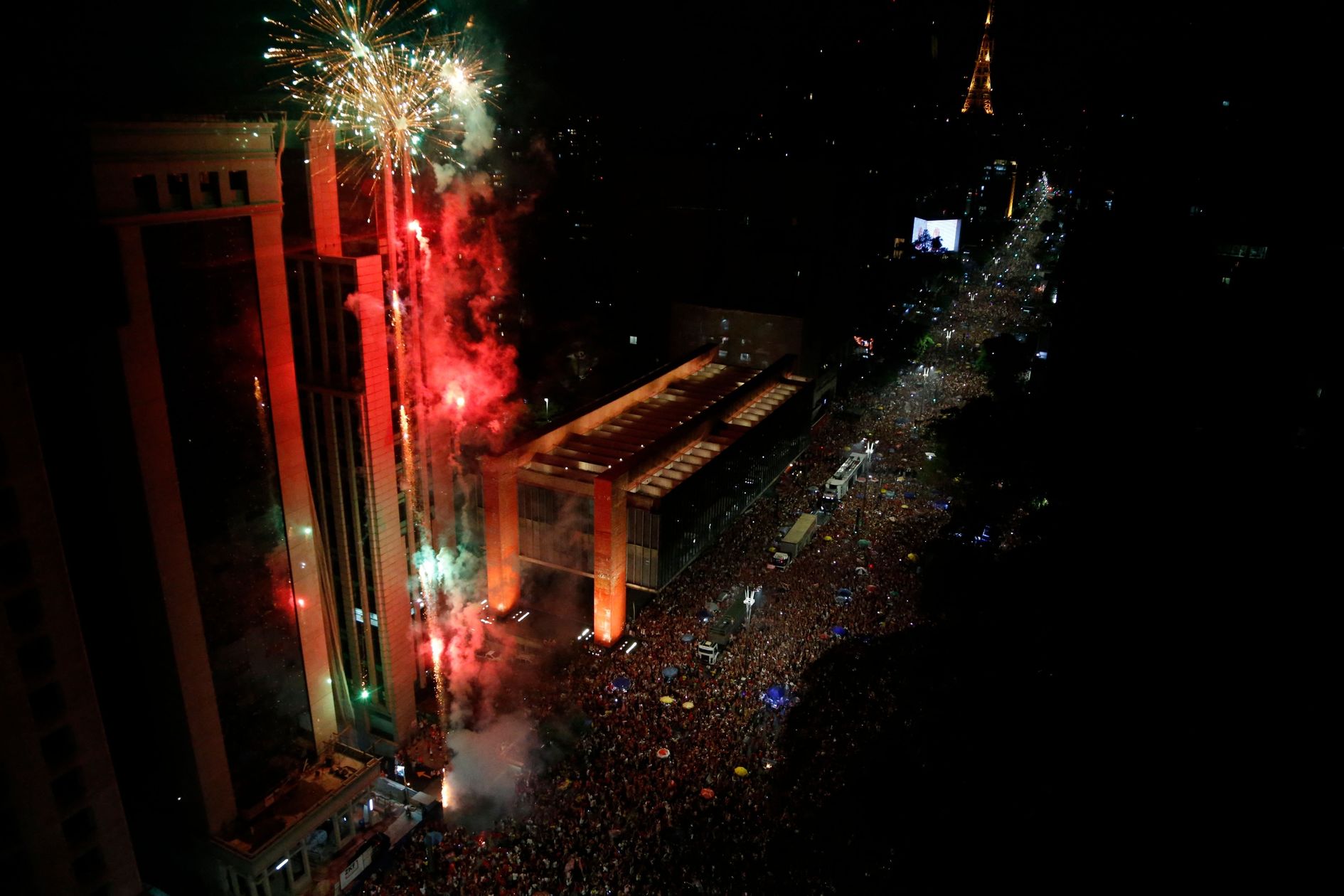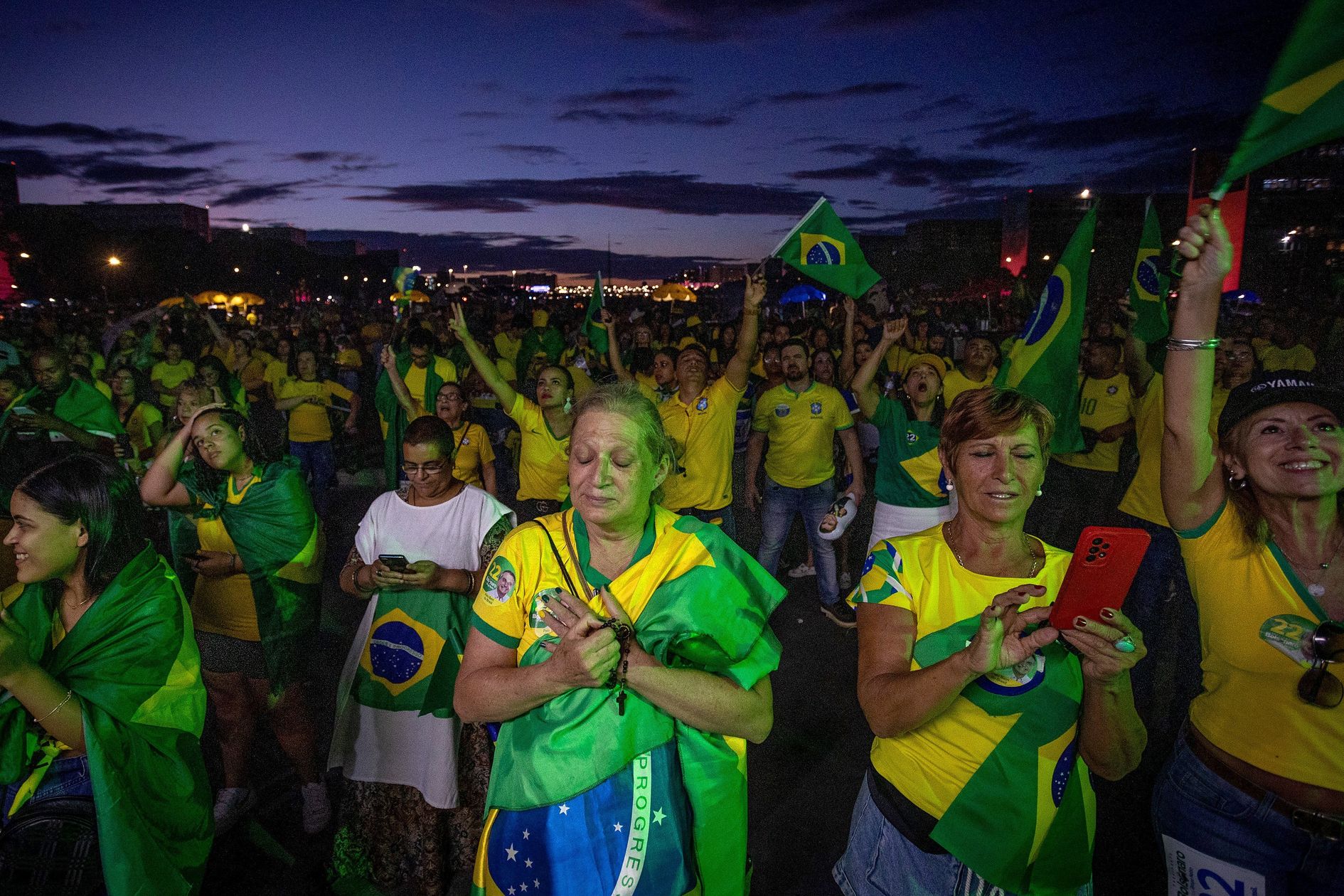Left-wing politician and former President Luiz Inácio Lula da Silva, popularly known as Lula, became Brazil’s new president on Sunday after defeating rival and incumbent leader Jair Bolsonaro in a tight runoff. In Brazil’s closest presidential race in history, Lula won 50.9% of the votes, while the right-wing Bolsonaro secured 49.1%, with 99.5% of the votes counted, according to Brazil’s Supreme Electoral Court.
Even though Lula, 77, won the election by a thin margin of 1.8%, his victory signals the return of the left to Brazil after four years of conservative leadership. His win also represents another indication of the rapidly spreading pink tide phenomenon across Latin America, which has in recent years seen a number of electoral victories for left-wing politicians, including in Colombia, Bolivia, Chile, Peru, and Honduras,
The victory will see Lula govern Brazil for a third term, with his inauguration set for 1 January, 2023. Lula served two terms from 2003 to 2010. However, following his prison sentence in 2018 for corruption, he was barred from participating in the presidential election in the same year.
Democracia. pic.twitter.com/zvnBbnQ3HG
— Lula 13 (@LulaOficial) October 30, 2022
In this respect, Lula indicated that his win on Sunday vindicated him from all corruption charges. “They tried to bury me alive and I’m here,” he declared. “I want to congratulate the people who voted for me, because I consider myself a citizen who has had a process of resurrection in Brazilian politics,” he noted.
Expressing his faith in God, Lula vowed to work together with all Brazilians to live “democratically and harmoniously.” Saying the real winners of the election are the people of Brazil, Lula mentioned that his triumph “is the victory of an immense democratic movement.” “The Brazilian people showed today that they want more than exercising the sacred right to choose who will govern their lives, they want to actively participate in government decisions,” he remarked.
Lula promised to protect the country’s democratic values and usher in an era of equality. “The wheel of the economy will turn again, with job creation, rising wages and renegotiating the debts of families that lost their purchasing power. The wheel of the economy will turn again with the poor being part of the budget, with support for small and medium rural producers,” he proclaimed.


The former President also assured that he will take measures to promote gender equality, protect the environment, fight racism, and protect the rights of indigenous peoples. “I will govern for 215 million Brazilians, and not just for those who voted for me. There are not two Brazils, we are a single country, a single people, a great nation,” he underscored.
Referring to Bolsonaro’s term as one that divided Brazil and sowed discord among citizens, Lula said that no Brazilian wants to live in “a permanent state of war.” He stated that Brazilians need “peace and unity” more than anything else, arguing, “It’s time to lay down the weapons that should never have been wielded, guns kill, and we choose life.”
To this end, Lula vowed to “rebuild the country in all dimensions”—political, economic, and social. Lula also vowed to reengage with the international community and expand Brazil’s global role. “Today, we are telling the world that Brazil is back, that Brazil is too big to be relegated to this sad role of pariah in the world. Let's regain the credibility, predictability and stability of the country, for national and foreign investors to regain confidence in Brazil,” he said.
What Latin America looks like after the victory of Lula in Brazil.
— Geeta Mohan گیتا موہن गीता मोहन (@Geeta_Mohan) October 31, 2022
Bolsonaro is out and another leftist leader in South America becomes President.
Ecuador, Paraguay, and Uruguay are the only ones left.#TheRedWave#PinkRide? pic.twitter.com/6UKOiBhEgv
Bolsonaro has yet to deliver a concession speech and has declined to call Lula to acknowledge the results. Bolsonaro has repeatedly claimed that Brazil’s electronic voting system could be easily compromised and warned that he would not accept an outcome in which he loses. In July, the President alleged that the country’s electronic voting system is “completely vulnerable” and “cannot give 100% guarantee of security.”
Furthermore, he has accused Lula of not wanting a transparent electoral system and blamed Supreme Court judges and other officials for supporting the former president. In this respect, Bolsonaro has called on Brazilians to boycott the electronic voting system and called for bringing in paper ballots.
Bolsonaro’s repeated bids to cast doubt on the electoral system in the country have raised speculation over his possible refusal to concede defeat. In fact, he outlined three possibilities for himself in the run-up to the election: “being arrested, killed, or victory.” In fact, he even threatened to deploy the army if he lost.
- Meu obrigado a Donald Trump pelo apoio! Sinto orgulho por ver que nosso trabalho por um Brasil mais seguro e mais livre é respeitado no mundo todo e que, hoje, contamos com o apoio de nações democráticas e não de ditaduras socialistas como no passado. Que a liberdade prevaleça! pic.twitter.com/EnI0VYEk7x
— Jair M. Bolsonaro 2️⃣2️⃣ (@jairbolsonaro) October 30, 2022
However, Bolsonaro’s allies said he would not contest the election results. “The will of the majority expressed at the polls should never be challenged and we will move forward in the construction of a sovereign, fair country with fewer inequalities,” Arthur Lira, an ally of the outgoing leader said.
Meanwhile, the international community has welcomed Lula’s victory. United States President Joe Biden tweeted his congratulations to Lula on becoming the President after “free, fair, and credible” elections. “I look forward to working together to continue the cooperation between our two countries in the months and years ahead.” Biden said.
Lula has also been congratulated by the leaders of Latin American countries, including fellow left-wing counterparts Venezuelan President Nicolás Maduro, Chilean President Gabriel Boric, Peruvian President Pedro Castillo, Colombian President Gustavo Petro, Bolivian President Luis Arce, and Cuban President Miguel Díaz-Canel. The leaders of the European Union, Canada, France, Portugal, Spain, and Australia, too, have welcomed the result.
I send my congratulations to Luiz Inácio Lula da Silva on his election to be the next president of Brazil following free, fair, and credible elections. I look forward to working together to continue the cooperation between our two countries in the months and years ahead.
— President Biden (@POTUS) October 31, 2022
Lula and Bolsonaro headed to a second round of voting following a tight first round on 2 October, in which neither candidate secured the required 50% majority.
Lula, who led the country from 2003 to 2010, was known for implementing a wave of social welfare policies. During his current campaign, he has promised a new tax model allowing for more public spending. The incoming president has also pledged to reduce rising hunger and poverty levels, carbon emissions, and deforestation, which saw an unprecedented rise during Bolsonaro’s term.
Bolsonaro was also heavily criticised over his handling of the COVID-19 crisis, after he repeatedly questioned the efficacy of vaccines, downplayed the severity of the virus, fired multiple health ministers for disagreeing with him, and even held anti-lockdown demonstrations, which ultimately led to more than 680,000 deaths in the country.
Lula, meanwhile, was convicted in a mass corruption scandal in 2017 and spent almost 19 months in jail on corruption and money laundering charges. However, the Supreme Court acquitted him in 2019 and nullified all charges in 2021, allowing him to run in the recently-concluded election.

